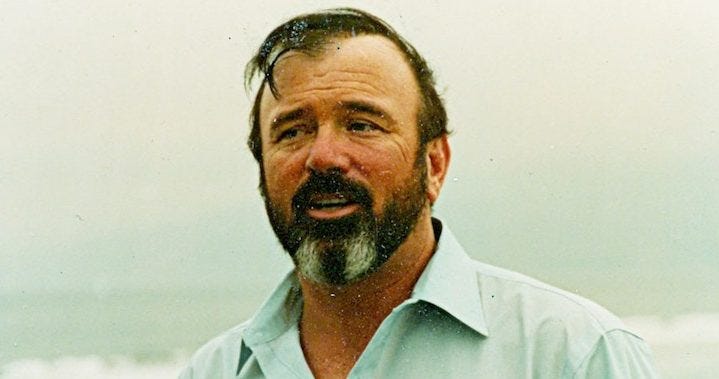5 Steps to Become a Copywriter in 2025 (Without a Marketing Degree)
Enjoy 508 Words on Getting Started:
Hey there.
The other day, a friend asked me:
“…I’m taking a year out of my career in law in October to travel, but I’d also like to dedicate some time to my writing - both fiction but also more commercial stuff like copywriting, to see if it’s something I’d enjoy/whether it would be viable as a side hustle for me to build. Any tips/advice you can give/places to start would be much appreciated! I’ve checked out the copywriting thread on Reddit which has some advice on starting out but if you’ve got anything you could advise based on your experience that would be super appreciated…”
For context:
I’ve been a professional copywriter for 10 years.
And Associate Creative Director for 2.
(Even though I graduated with a degree in music business.)
Since then, the copywriting space has changed a ton.
So, I told him this:
1. Experiment with All Types of Copywriting
Copywriting isn’t one-size-fits-all.
Off the top of my head, I’ve done 4 types:
Brand Copywriting: Crafting the brand’s personality and voice. Think tagline, mission statement, website copy.
Direct Response Copywriting: Selling through conversion-focused content. Ads, emails, landing pages. (“Sign up today!” kind of stuff.)
Creative Copywriting: Building awareness with ad campaigns, commercials, stories, branded content, and creative concepts.
UX Copywriting: Guiding users through digital (and sometimes physical) experiences.
If I could do it all over again?
I would’ve focused on one of them and gotten really, really good at it. Each type solves a different business problem. And it’s important to learn to spot the difference.
For example:
Direct response is all about driving sales, while creative copy is about building brand awareness. Which do you enjoy most?
Pick that one.
2. Go Full Bore on Your Favorite Type
Once you find the type you want to focus on, go deep.
This is what separates the people who get swallowed up by AI from those who thrive. You should master the fundamentals without AI first. Then, once you know the ins and outs, you can use AI as a tool to speed up your process. Document what you learn. Share what you’re discover, not just to help others, but to show Creative Directors you’re the real deal.
A great example of this?
Eddie Shleyner.
Eddie started by sharing what he was learning about copywriting. He’s worked with hundreds of companies. Now, he’s built a business off his wisdom.
And written a really beautiful book called Very Good Copy
3. Do Free Work (Yes, I’m Serious)
A lot of creatives hate free work, but Nicolas Cole describes this as getting paid in confidence.
And I agree with him. When you do free work, you get to practice, get results, and build relationships without as much pressure. Plus, once you’ve done a few projects, you’ll have results and testimonials to showcase in your portfolio.
This is what will convince clients to pay you.
4. Build a Story with Your Portfolio
Your portfolio shouldn’t just be a collection of work.
The best portfolios I’ve reviewed tell a story. They walk me through your thought process from start to finish. Explaining not just what you did, but why you did it, how you did it, and how it impacted the client.
In my opinion, this is what separates an ignored writer from an irresistible one.
5. Build Some Momentum
If you do all of this, you should start getting people reaching out to you.
The reason is you’re practicing in public, sharing what you’re learning, and being transparent about the work you’re doing.
And yeah, free work is key.
That’s how I got started without a degree in copywriting.
I gained some traction, and kept going. Making genuine connections and showing people how I can add value to what they’re doing.
Do that enough, and you can’t lose.
Hope this helps,
Jake
Oh!
One more thing.
If you’re looking to get into copywriting, I think you’d find my free course helpful:
How to Become a Challenger Copywriter in 5 Days
It’s all about a type of copywriting that I love the most. I call it: “Challenger Copywriting.” Which is all about writing copy for challenger brands.
In the words of Adam Morgan:
“A challenger brand is a brand that has business ambitions beyond conventional marketing resources and is prepared to do something bold, usually against the market leader, to break through.”
Also here’s a link to Eddie’s book: Very Good Copy
See you next time,
Jake





This sounds like really wise and typically generous advice, Jake.
This is awesome 😎